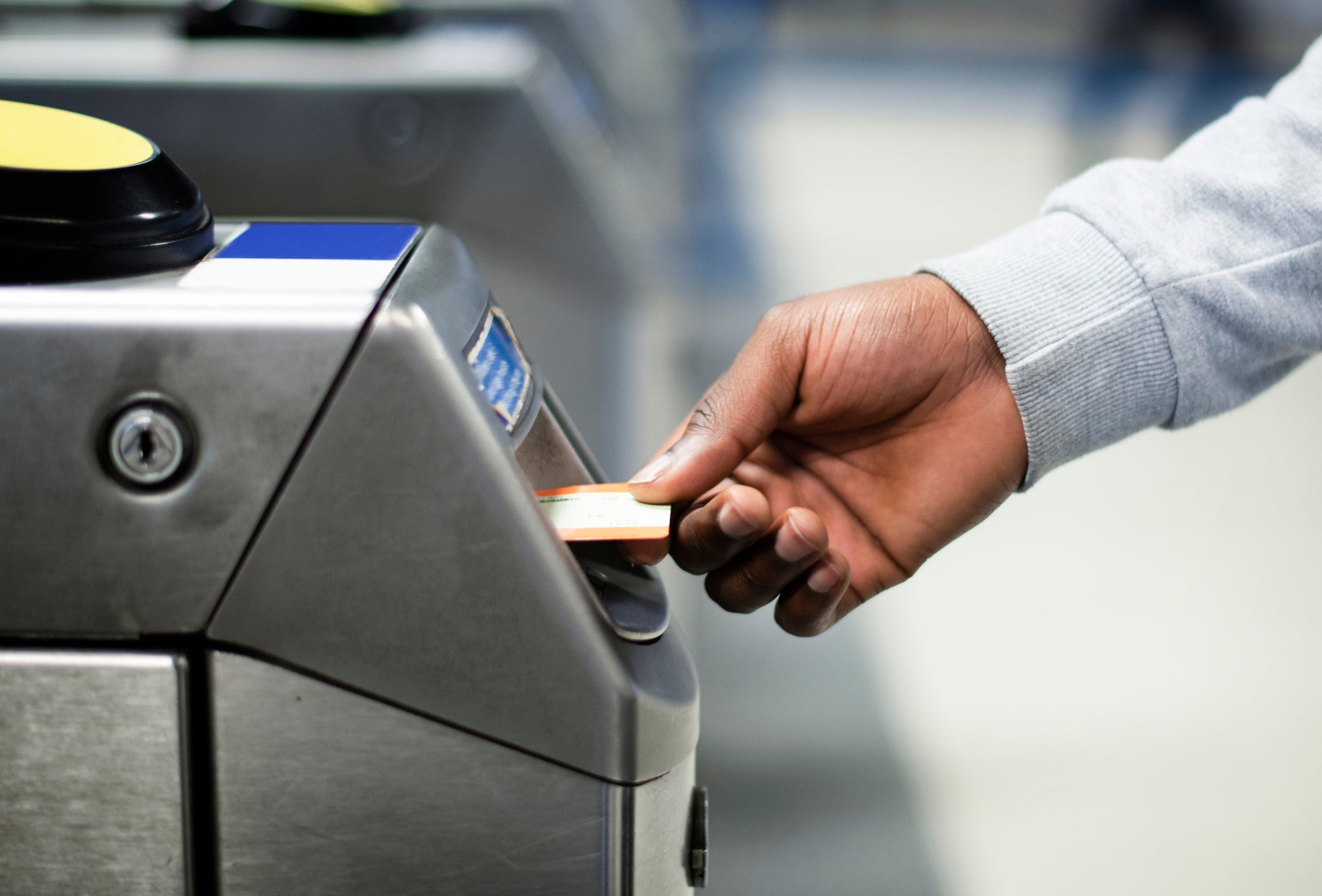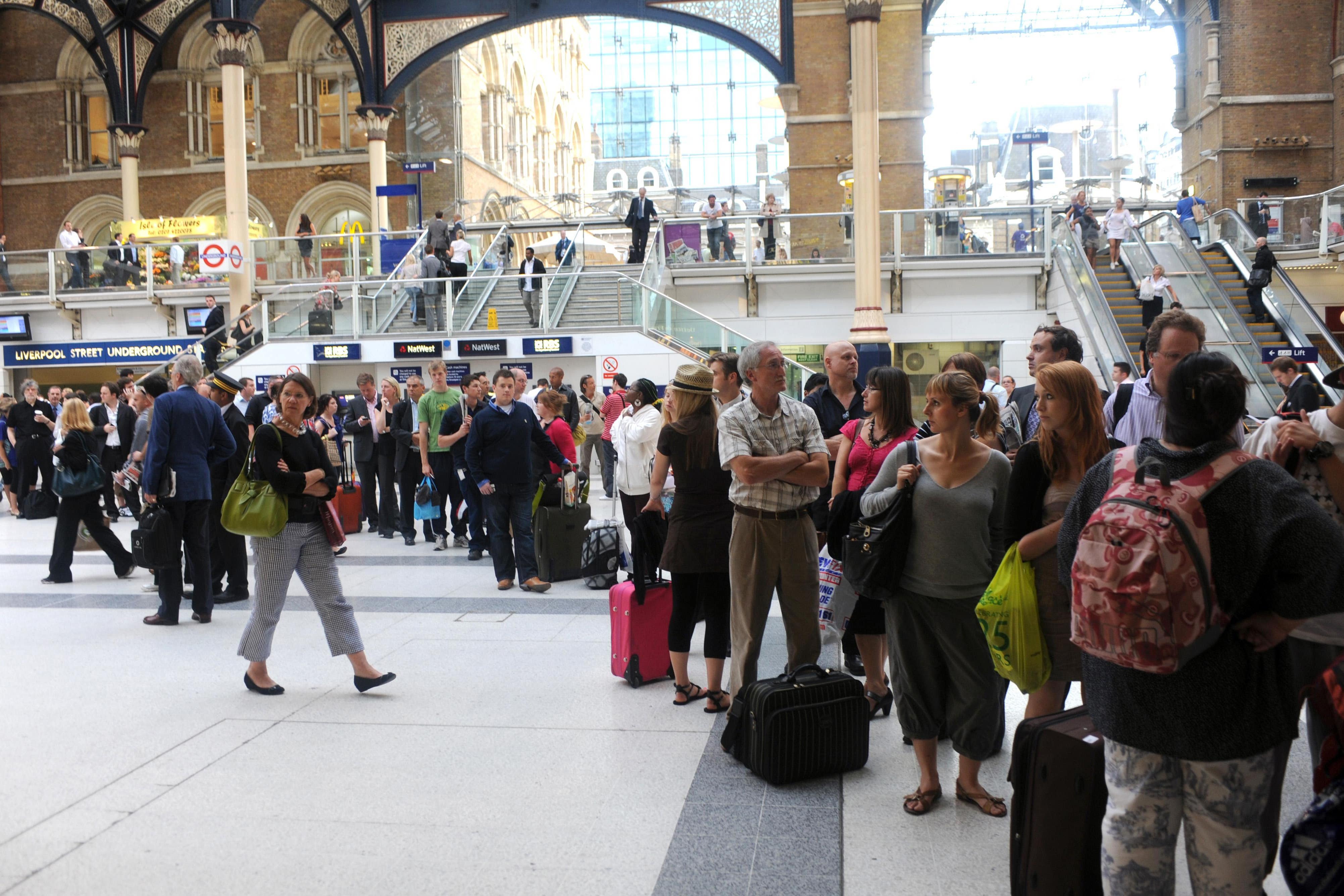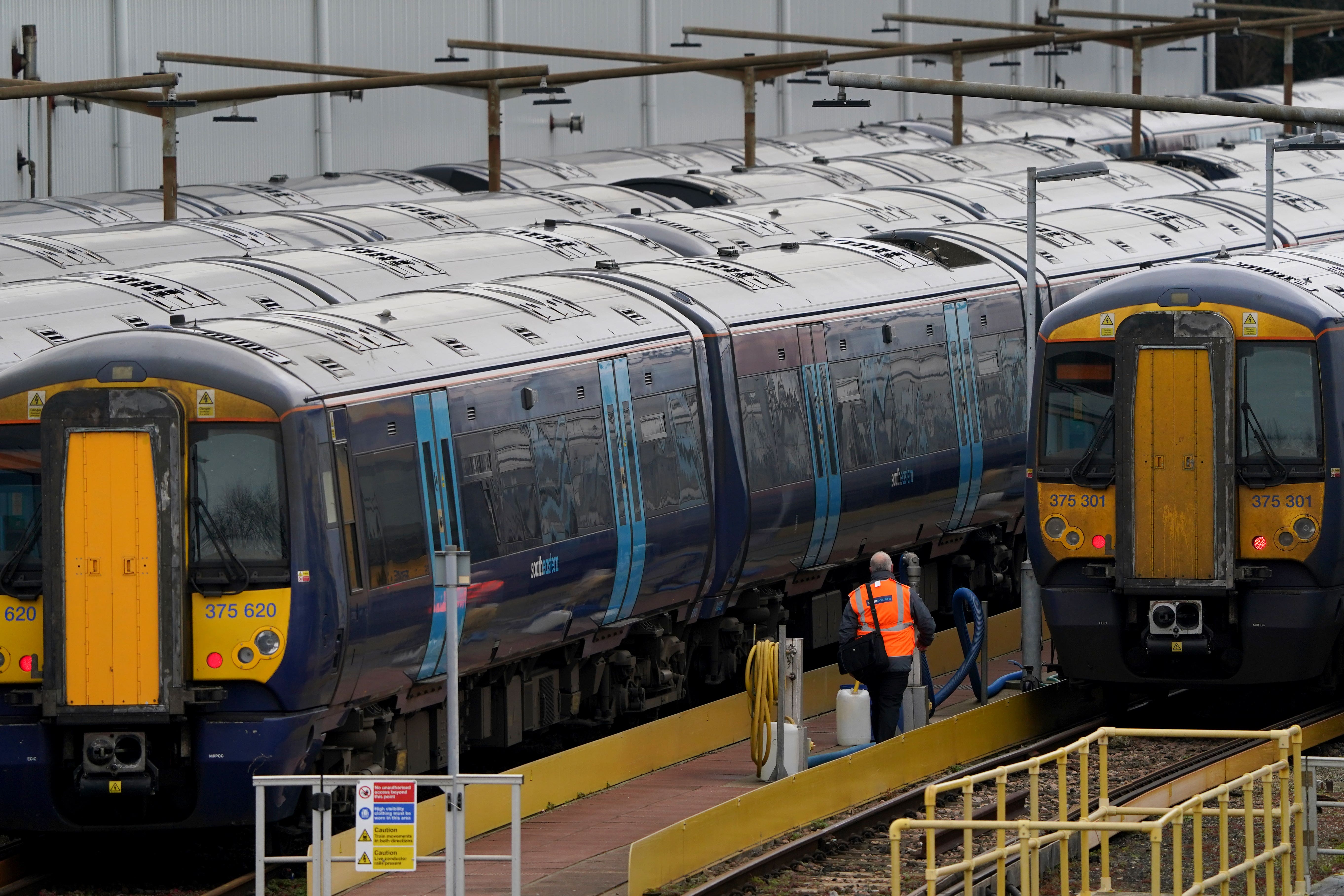More misery for rail passengers as cheap train tickets could become harder to get
Window for cheap tickets could be cut from three months to eight weeks

Your support helps us to tell the story
From reproductive rights to climate change to Big Tech, The Independent is on the ground when the story is developing. Whether it's investigating the financials of Elon Musk's pro-Trump PAC or producing our latest documentary, 'The A Word', which shines a light on the American women fighting for reproductive rights, we know how important it is to parse out the facts from the messaging.
At such a critical moment in US history, we need reporters on the ground. Your donation allows us to keep sending journalists to speak to both sides of the story.
The Independent is trusted by Americans across the entire political spectrum. And unlike many other quality news outlets, we choose not to lock Americans out of our reporting and analysis with paywalls. We believe quality journalism should be available to everyone, paid for by those who can afford it.
Your support makes all the difference.Cheap advance train tickets could be harder to get under new plans that would deal another blow to rail passengers already hit by rising fares, strikes and route cancellations.
Passengers have long been encouraged to book in advance to secure cheaper tickets amid complaints about sky-high prices, which jumped another 5.9 per cent in March.
But under proposals, set to be considered by the government’s rail regulator, the window to buy discount fares could be cut from three months to just eight weeks before the date of travel – making it harder to plan ahead.
The UK’s transport watchdog called the changes, “bad news for passengers”, while Labour accused the government of presiding over “managed decline” of the railway.
It comes amid major disruption for passengers this weekend as thousands of workers walk out in a near-year-long dispute over jobs, pay and conditions.
Track manager Network Rail, which has been hit by rising costs, has been struggling to finalise timetables three months in advance, partly due to staffing issues and the ongoing industrial action, and wants the rules changed so it has more time to plan.
Railway experts accused the firm of wanting ‘‘the goalposts moved’’ and noted that even the failed former infrastructure manager Railtrack was able to get timetables sorted three months in advance back in the 1990s.
The plan, which Network Rail calls ‘‘Better Timetabling for Passengers and Freight’’, comes as the industry is struggling to encourage travellers back onto trains following the Covid-19 pandemic.
‘‘This could be bad news for passengers and potential passengers. It could give people less time to see if the train is an option for them and to buy a cheaper advance ticket,’’ said Anthony Smith, chief executive of Transport Focus, the UK's independent watchdog for transport users.
‘‘Is nailing down the timetable eight weeks ahead rather than three months really the way to win more passengers to the railway?’’
The change means passengers who still want to book more than eight weeks in advance could end up paying more. Most operators still let passengers book a ticket before the timetable has been confirmed, but charge them for a full-price single ticket that can be used on any train.
The Department for Transport said it is not responsible for the proposed change and that it is a matter for the rail industry – though the government’s regulator, the Office of Rail and Road (ORR) will ultimately decide whether the plans go ahead.
The ORR itself says ticket sales are a ‘‘matter for train operators’’ and describes the plans as an ‘‘industry proposal’’, though the part of the industry it originates from, Network Rail, is also owned by the government.
The Independent revealed in April that Network Rail believes it will not be able to “operate, maintain and renew” a reliable railway under its current government funding.
Network Rail said train companies could sell discounted train tickets before the final timetable has been confirmed and then apologise if the train is unable to run. This approach is already being trialled by some operators.
But Mark Smith, a former British Rail manager whose popular website the Man in Seat 61 helps people travel by train, told The Independent this could cause further problems.

‘‘Network Rail are finding advance planning difficult, so want the goalposts moved to make it easier, in an era when people want to book further ahead not closer to departure,’’ he said.
‘‘Even if tickets were sold based on the theoretical schedule, this would result in many more people getting a ‘Dear John’ letter just weeks before they left telling them their booked train’s timings have changed and they may not longer get to their appointment or show or even connecting ferry or flight on time.
‘‘When ORR issued an enforcement order back in the 1990s, the (then) Railtrack proved that T-12 could be achieved.’’
Louise Haigh, Labour’s shadow transport secretary, said: ‘‘Passengers are already being stung by the double hammer blow of rocketing fares and second-rate infrastructure.
“The Conservatives are content to preside over managed decline which means passengers have less choice and are out of pocket.”
She said Labour would reform the system by “bringing operators back into public ownership as contracts expire and putting passengers at the heart of the system”.
A Network Rail spokesperson said the plan was designed to provide a more flexible service for passengers and will allow it to respond more quickly to changing travel patterns.
‘‘It has been developed and agreed by the industry and is broadly in line with the timescales and processes which have been successfully in operation since 2020 when the 12-week timeframe dropped due to the increased pressures on timetabling teams across the railway and falling passenger numbers,’’ they said.
The latest government figures show that rail passenger numbers are now close to 100 per cent of pre-pandemic levels across Great Britain, though revenue is thought to be at a lower level because fewer people are commuting at peak time.
A Department for Transport spokesperson said: ‘‘While altering timetabling rules could help train companies respond more quickly to demand, we have been clear with industry that passengers must not lose out from any changes.”

An ORR spokesperson said any proposed timetabling changes under the Network Rail Code must be approved by the regulator and it has not yet received a referral.
‘‘The publication of the ‘final’ timetable in advance of trains running does not dictate when tickets are sold. It is a matter for train operators to decide when they offer tickets for sale,” it added.




Join our commenting forum
Join thought-provoking conversations, follow other Independent readers and see their replies
Comments